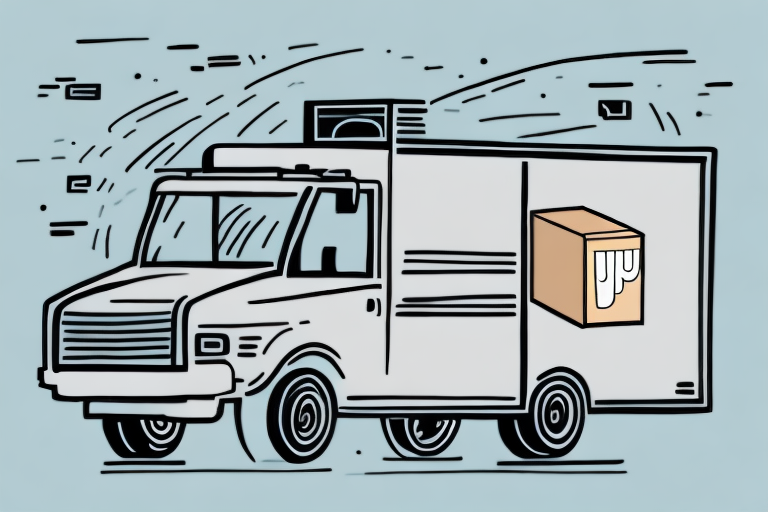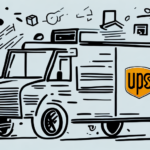Introduction to UPS Shipping Insurance
UPS is one of the most widely used shipping companies globally, handling millions of packages daily. Despite UPS's reliability, unforeseen events can lead to your package being lost, stolen, or damaged during transit. UPS insurance is a vital tool to safeguard against these risks. This article explores the essentials of UPS insurance, including its benefits, coverage options, costs, and how to obtain it.
Why Insure Your UPS Packages?
Shipping a package with UPS involves entrusting your valuable items to a third-party service provider. While UPS maintains high standards for safety and reliability, the possibility of mishaps during transit cannot be entirely eliminated. Insuring your UPS packages provides financial protection against potential losses, ensuring peace of mind when shipping valuable or irreplaceable items.
According to UPS, over 20 million packages are shipped daily worldwide, highlighting the importance of having insurance to mitigate risks associated with such high volumes.
Types of UPS Insurance Coverage
Declared Value Coverage
Declared Value Coverage allows you to insure your package based on its declared value. UPS insures packages for their full declared value, up to a maximum limit. This coverage protects against loss or damage during transit.
- Basic Coverage: Included with most UPS services, providing a limited amount of coverage without additional cost.
- Additional Coverage: Available for higher-value items beyond the basic coverage limit.
Additional Insurance Options
For high-value or fragile shipments, UPS offers specialized insurance options:
- UPS Proactive Response Secure: Provides enhanced insurance coverage, 24/7 monitoring, real-time tracking, and personalized support for high-value shipments.
- UPS Capital Cargo Finance: Offers financing solutions for high-value shipments, ensuring financial protection and flexibility.
What UPS Insurance Covers
UPS insurance covers the declared value of the item in cases of loss or damage during transit. However, certain items are excluded from coverage:
- Cash
- Jewelry
- Perishable goods
- Hazardous materials
For shipping these excluded items, it's advisable to seek specialized insurance policies that cater to their unique risks.
Additionally, UPS insurance does not cover:
- Expedited shipping costs
- Special packaging materials
- Damage occurring before shipping or after delivery
Cost of UPS Insurance
The cost of UPS insurance varies based on the declared value of the package and the level of coverage selected. Generally, UPS charges a fee of $0.75 for every $100 of declared value coverage. For instance, insuring a package worth $1,000 would cost $7.50.
Additional insurance options, such as UPS Proactive Response Secure, may incur higher fees due to the enhanced services and coverage provided.
It's essential to evaluate the value and fragility of your items against the cost of insurance to determine if the investment is worthwhile.
How to Purchase UPS Insurance
Purchasing UPS insurance is a straightforward process that can be done either online or at a UPS Store location:
- Online: Visit the UPS website, navigate to the shipping section, and follow the prompts to enter your shipment details and select insurance coverage.
- UPS Store: Bring your package to a UPS Store, and the staff will assist you in purchasing the appropriate insurance coverage.
UPS offers insurance coverage up to $50,000 for domestic shipments and up to $100,000 for international shipments, ensuring comprehensive protection for valuable items.
Filing a Claim for Lost or Damaged Packages
If your UPS package is lost or damaged during transit, you can file a claim to receive compensation. The process involves the following steps:
- Visit the UPS Claims Center.
- Provide proof of the item's value and documentation showing the loss or damage.
- Submit the claim online or by mail.
UPS typically processes claims within a few weeks, but the timeframe may vary depending on the complexity of the claim. It's crucial to adhere to UPS's guidelines, such as retaining the original packaging and damaged items for inspection if applicable.
Tips to Prevent Damage and Loss
While insurance provides financial protection, taking proactive measures can significantly reduce the risk of damage or loss:
- Use High-Quality Packaging: Invest in sturdy boxes and reliable packing materials to protect your items.
- Secure Fragile Items: Utilize bubble wrap, packing peanuts, or other cushioning materials to safeguard delicate items.
- Double-Walled Boxes: Offer added protection for valuable or fragile shipments.
- Proper Labeling: Clearly mark packages with necessary information to ensure accurate handling and delivery.
- Track Your Shipment: Keep tracking information readily available to monitor your package's status in real-time.
Understanding UPS Insurance Policy Terms
Before purchasing UPS insurance, it's essential to thoroughly understand your policy's terms and conditions:
- Maximum Coverage: Know the maximum value your policy covers to ensure adequate protection.
- Exclusions and Limitations: Be aware of items and circumstances not covered by the insurance.
- Claim Procedures: Familiarize yourself with the steps required to file a claim efficiently.
Accurately declaring the value of your package is crucial. Under-declaring may result in insufficient compensation, while over-declaring can lead to unnecessary higher insurance costs.
Comparing UPS Insurance to Other Shipping Insurance Options
UPS is not the only provider offering shipping insurance. Other carriers like FedEx and USPS also provide similar insurance services. Additionally, third-party insurers offer shipping insurance that can be compared based on coverage and cost.
When choosing the best insurance option, consider the following factors:
- Coverage Scope: Ensure the insurance covers all potential risks relevant to your shipment.
- Cost: Compare premiums to find a cost-effective solution without compromising on coverage.
- Claims Process: Evaluate the ease and efficiency of filing claims with the insurer.
Research and compare different providers to select the insurance that best fits your shipping needs.
Conclusion
Insuring your UPS packages is a prudent decision, especially when shipping valuable or fragile items. By understanding the various coverage options, costs, and claim processes, you can make informed choices to protect your shipments effectively. Additionally, implementing preventive measures can further minimize the risk of damage or loss, ensuring your packages arrive safely and on time.




















